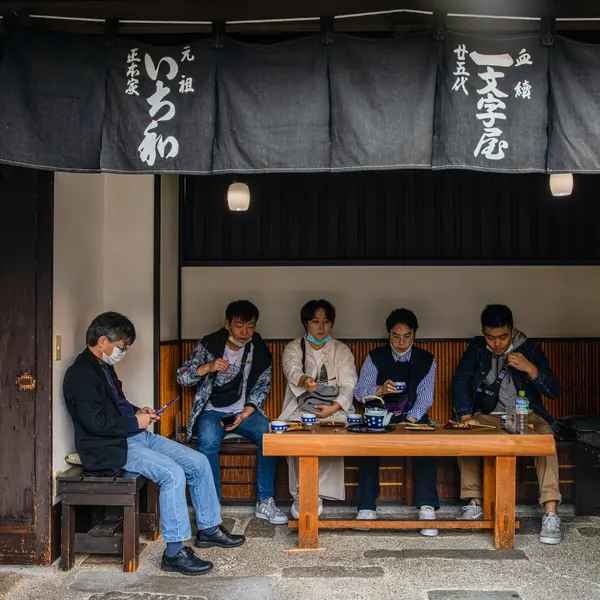Old Japanese mochi shop name
« previous post | next post »
The wording on the noren of the mochi shop featured in this article caught my eye:
"This Japanese Shop Is 1,020 Years Old", By Ben Dooley and Hisako Ueno, NYT (12/2/20):
I'm always interested in writing systems, so I wondered why this ancient shop calls itself 一文字. That could be pronounced hitomoji, with the meaning "one (written) character" or Welsh onion (Allium fistulosum) [archaism, female term or language; see 葱]), and it could also be pronounced ichimonji, meaning "straight line; beeline".
The noren on the left has ichiwa いち和, i.e., 一和, which I suppose might mean "one harmony", although those two characters have many different pronunciations and meanings:
Frank Chance explains:
The full name of the shop is 一文字屋和輔 abbreviated as 一和. Technically they seem to be two shops, 一文字屋 and 和輔, both selling the same aburimochi rice cakes. 和輔 would seem to be the personal name of the founder, read as Wasuke. I suppose one can interpret the 和 as “harmony”, but in a name it also can be read as kazu, homonymous with “one” implying he was the first, i.e., eldest son.
Words don't always mean what they seem to on the surface in Japanese. Often you have to dig deep, deep, deep to uncover their real significance, especially when you're dealing with names. Coping with the pronunciation of Japanese proper nouns was the hardest part of my training as a Sinologist.
By the way, according to the NYT article, the mochi that Ichiwa sells is a kind of grilled rice flour cake, not the frozen sweet that has become popular in the United States in recent years.
[h.t. John Tkacik]
